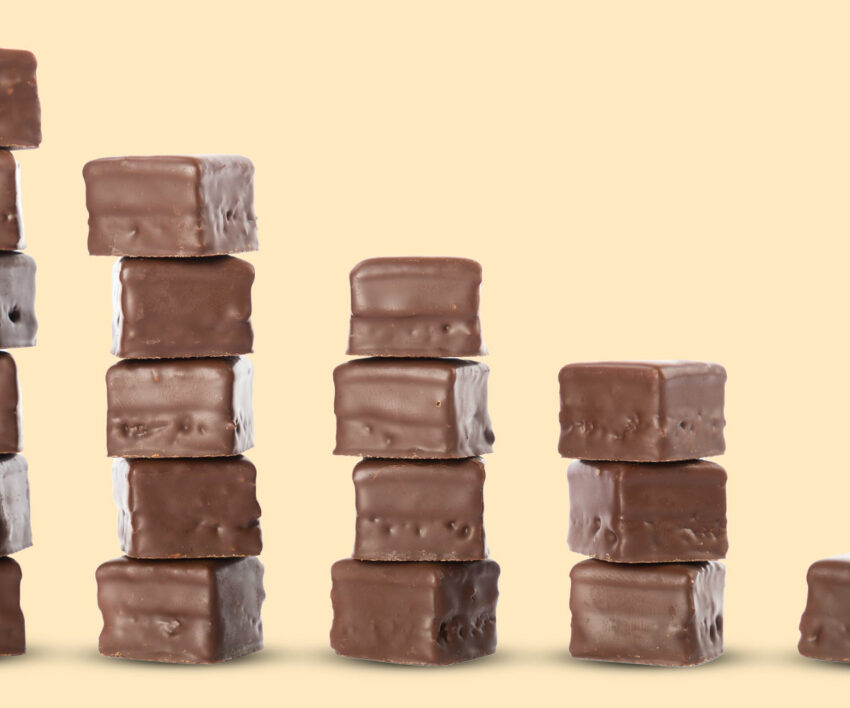
The Aisle You Thought You Knew
Imagine picking up your usual baked beans or tomato sauce and realising the number on the packet has quietly changed while the price remains the same. That’s the growing frustration many South African shoppers are voicing this year. A viral video inside a grocery store revealed how beloved brands are quietly reducing the size or quantity of products—what’s known globally as shrinkflation.
“Giving Us Less for More”
The clip, shared on Instagram via user @laurak_waves, showed a can of one brand of baked beans previously labelled at 410 g now reading 400 g, while a competitor remains at 410 g and costs less. Another example: a popular tomato sauce that used to measure 750 ml is now at 700 ml. A snack pack that was once 150 g has shrunk to 135 g. Even ice cream tubs and premium ice cream bars have lost volume.
For many shoppers, this wasn’t just an “odd one-off”—it was a pattern, and one they say has been happening for a few years under the radar. It triggered a stream of social media posts declaring: We are paying the same for less.
Mzansi’s Reaction: From Shock to Accountability
In the comment sections under the Instagram video, frustration filled the air. One user wrote, “Everybody made me feel like I was losing my mind. I’ve been saying this for years.” Another posted: “The quantity is less, but the price is more. It started a few years ago with that soda going from 500 ml to 440 ml.” Several asked if the National Consumer Commission was aware of the shift.
The wider reaction seemed to be a collective “finally we see it”. Some joked about needing to carry a magnifying glass in the next shop run, and others made memes about “shrinking snacks.” But beyond the humour was a real concern: when even our everyday groceries change without announcement, what does that mean for budgets already squeezed by inflation?
It’s Not Just South Africa
While South Africans are calling it out en masse, shrinkflation is a global trend. Analysts estimate that roughly one in three common food or household products has been reduced in size since the pandemic, while keeping the same or even higher price. South Africa’s experience mirrors what consumers elsewhere are coping with.
But the local twist lies in how these changes land within a society already facing high cost-of-living pressures. For communities where every rand counts, the silent shrinkages feel like extra weight on the grocery bag.
View this post on Instagram
Why It Matters and What You Can Do
The reason behind shrinkflation is straightforward: rising input costs for manufacturers, from raw materials to logistics, mean profits are squeezed. Instead of raising retail prices—which could trigger consumer pushback—some brands choose to keep the price the same and reduce the quantity.
As a shopper, you can beat it by staying aware. Compare pack sizes side by side, check unit-price pricing at the shelf, and support brands that are transparent about changes. Ask stores to clarify any size changes and make your voice heard via comments or consumer complaint channels.
The Bigger Picture: Trust and Transparency
In South Africa, especially, where food inflation remains a heated topic, this shrinkflation debate is as much about trust as it is about size. When shoppers discover their favourite product has quietly shrunk, it chips away at the relationship between brand and customer. A society with fewer “hidden” changes is a society where consumers feel respected and informed.
As this trend gains more visibility in Mzansi, the question shifts from “Are they doing it?” to “What are we going to do about it?” For ordinary consumers shopping in Pretoria, Durban, or Cape Town, the message is clear: check the labels, stay alert, and let your Rands demand full value.
Source: Briefly News
Featured Image: Which? | Expert testing, reviews and advice –




